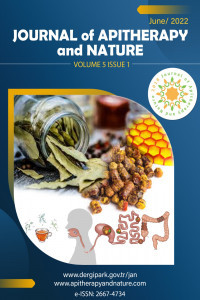Toothpaste with Propolis “Apident” Shows Antimicrobial Activity in vitro
Toothpaste with Propolis “Apident” Shows Antimicrobial Activity in vitro
In this study, we
evaluated the antibacterial activity of toothpaste with Propolis, used for
the treatment of teeth and as a medicine for endodontic treatment. Toothpaste
with Propolis was prepared using the water-soluble Propolis extract. Calcium
Hydroxide was a control, as well as two commercial and two medical
toothpastes. The bacteria on which Propolis toothpaste works are Streptococcus mutans, Staphylococcus
aureus, Micrococcus luteus, Escherichia coli, Pseudomonas aeruginosa and
yeast Candida albicans. The
inhibition of bacterial/yeast growth was evaluated by colouring with
resazurine. The inhibition of bacterial/yeast growth is apparent in changing
the color of resazurine from blue to pink. MIC (Minimum Inhibitory
Concentration) was determined as the maximum dilution in which no minimal
color change occurs or a minimal color change occurs. For example, in the
seventh hole, the color from pink to blue has changed. Therefore, the color
change in the seventh hole at dilution 1:64 means MIC = 1 × 10/64 = 0.156
mg/mL. MIC values of toothpaste with Propolis were against S. aureus: 0.031 mg/mL (0.326 mg/mL of medical toothpaste, 0.187
mg/mL of commercial toothpaste); Micrococcus
luteus: 0.003 mg/mL (0.140 mg/mL of medicinal toothpaste, 0.046 mg/mL of
commercial toothpaste); Streptococcus
mutans: 0.015 mg/mL (0.140 mg/mL medical toothpaste, 0.019 mg/mL of
commercial toothpaste); E. coli:
0.015 mg/mL (0.375 mg/mL medical toothpaste, 0.062 mg/mL of commercial
toothpaste); Pseudomonas ae ruginosa:
0.062 mg/mL (0.281 mg/mL medical toothpaste, 0.046 mg/mL of commercial
toothpaste) and yeast Candida albicans:
0.015 mg/mL (0.140 mg/mL medical toothpaste, 0.281 mg/mL commercial
toothpaste ). Comparison of MIC values between
toothpaste with Propolis and medical toothpastes demonstrates greater
effectiveness of Propolis toothpaste from 4.53 to 25.0 times. For St. aureus, this was 10.51 times; for Str. mutans 9.33 times, E. coli 25.0 times; for Pseudomonas aeruginosa 4.53 times and
yeast Candida albicans 9.33 times.
Compared with commercial toothpastes, Propolis toothpaste was better: 0.74 to
18.73 times. For St. aureus, was
6.03 times, for Str. mutans 1.26
times, for E. coli 4.13 times; for Pseudomonas aeruginosa 0.74 times and
yeast Candida albicans 18.73 times.
